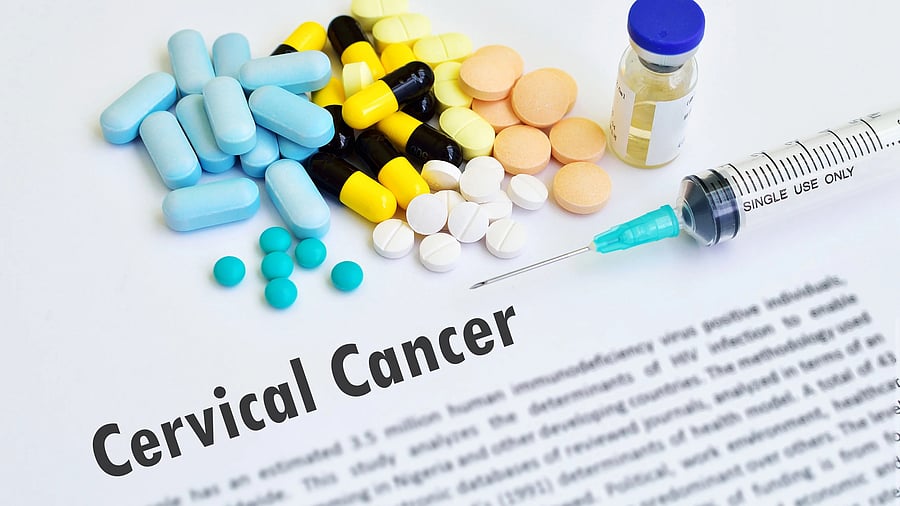
Credit: iStock
Bengaluru: Cervical cancer, the second-most common cancer among women in India with more detections done annually, poses a risk beginning as early as 15 years.
Experts warn that as a primary preventive measure, the Human Papillomavirus (HPV) vaccine should be administered before the age of 14 for best results.
A workshop held by UNICEF in association with the Department of Journalism and Mass Communication at the University of Mysore presented studies that proved both boys and girls should be vaccinated against HPV to reduce the risk of infection. While men cannot be affected with cervical cancer, they can be infected with HPV, which can further lead to penile and oropharyngeal cancers.
"Paediatricians and gynaecologists should encourage people to get vaccinated as they regularly see children and women and should include HPV vaccines in the vaccination list," said Dr Sridhar Prahlad Ryavanki, a UNICEF health specialist.
Symptoms
Highlighting the symptoms of cervical cancer, experts noted that persistent HPV infections, vaginal discharge, irregular vaginal bleeding, pelvic or abdominal bleeding, and post-coital vaginal bleeding require medical intervention.
In the advanced stage, the foul smell of the discharge and severe pelvic or abdominal pain should be immediately attended to, doctors said.
Doctors explained that engaging in sexual activity before the age of 18 doubles the risk of cervical cancer. "Having multiple sexual partners increases the risk multi-fold depending on the number of partners," said Dr Ryavanki.
Full-term pregnancies before the age of 17, a higher number of pregnancies, tobacco and alcohol addiction, obesity, continuous use of oral contraceptives, and a family history of cervical cancer increase the chances of cancer, he added.
Three stages
In the primary prevention stage, along with vaccines, age-appropriate education about safe sex and tobacco use is important.
In the secondary stage, screening with high-performance tests, followed by immediate medical intervention, is crucial.
In tertiary prevention, surgery, radiotherapy, chemotherapy, and palliative care are followed, the doctors said.
